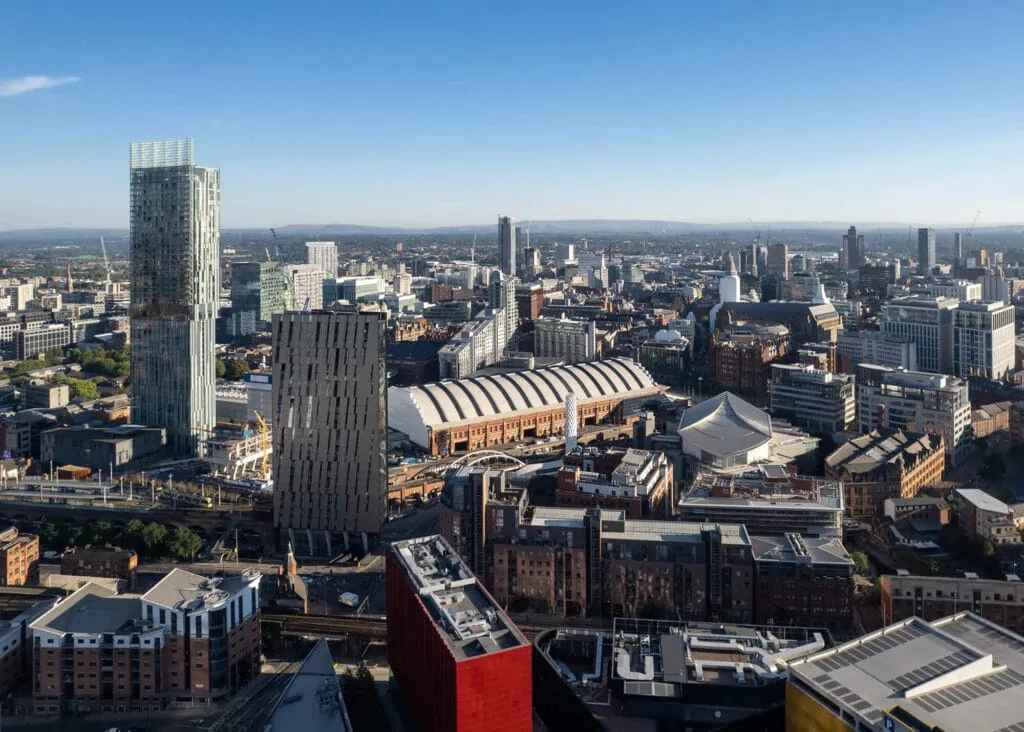Firstly – what is your investment goal?
Of course, above all else, you want to grow your wealth. That’s taken as read.
But what’s your investment plan?
Do you want to make all of your money quickly? Or do you want to generate a more gradual amount over a longer period?
It’s essential to firmly set this goal and bear it in mind when asking “is property a good investment?” for you.
It is possible to generate a large profit, in the form of of capital appreciation, when you sell your property. But it’s important to remember that this will take time. If you start with at least a five to 10-year approach, and provided you’ve bought in the right sector and location (discussed further down this article), you should begin to achieve a significant uplift in the value of your property.
If you’re looking for an income-generating asset, then UK property is the ideal investment. Finding a tenant for your property will provide you with a regular income stream in the form of rent. For this, you will need to ensure you buy the right property, in a market that is proven to deliver strong rental returns. Get this right and you can enjoy a high annual yield, helping to supplement your other sources of income.
UK property is an investment for the long-term. The most successful property investors have made their money by taking a long-term view.
Explore the different types of investments
The three most established UK property types are residential, student, and commercial.
Commercial property is most commonly bought by investment funds, whereas private investors investing in UK property will do so with either residential or student real estate. We will focus on the latter two in this article.
Residential property
Buying a property with the intention of letting it out to a tenant is one of the most widely recognised approaches to property investment.
In the UK, the concept of ‘buy-to-let’ surged in popularity in the late 1980s and early 1990s, thanks in part to the introduction of specialist mortgages. Private investors would buy a home originally intended for owner occupation, and then move it into the private rented sector to be occupied by a tenant.
Demand for rental property in the UK will reach six million people by 2025. The UK, the nation arguably the most enamoured by the idea of homeownership of any in Europe, is now seeing an increased shift in attitudes towards renting.
As the demand to rent has grown, so too has the demand to invest in UK residential property. But in recent years, typical buy-to-let homes have started to look outdated and unable to meet modern tenant needs.
Build-to-rent investments – purpose-built rental properties – have increased in popularity with both tenants and investors over the last decade. Modern living spaces and premium amenities, built by private developers, are highly desirable among tenants in key UK cities, making build-to-rent one of the UK’s fastest-growing investment sectors.
Student property
Property investors in the UK over many years have also targeted the student sector, too.
In the summer of 2020, 40.5% of all 18-year-olds in the UK had applied to study at university ahead of the 2020/21 academic year, the highest level on record. And, as the demand for a UK education continues to rise – even during times of wider uncertainty – the demand for student accommodation also increases.
A house of multiple occupation (HMO), whereby a residential home is repurposed to house several tenants under the same roof, is a property type most commonly associated with students in university cities. For investors, providing a home for a group of students can provide a lucrative rental revenue during university term times each year.
However, like residential buy-to-let, HMOs are also starting to be regarded as an outdated solution. Purpose-built student accommodation (PBSA) – privately developed student apartments in modern developments – now account for 30% of full-time UK undergraduate housing choices, compared with just 22% five years ago.
PBSA, with its blend of contemporary living spaces and luxury amenities, are fast becoming the most popular accommodation choice for students. It’s also become one of the largest property investment sectors in the world, with $16.3 billion invested into global PBSA in 2019.
Crucially, the UK remains significantly undersupplied of PBSA in key UK university cities. And, with many local councils keen to see more PBSA property in their cities to ease pressure on local residential housing markets, the sector continues to be attractive for investors considering a UK property investment.

Choosing the best location to invest in UK property
Once you’ve decided on a particular property type, the next crucial thing to do is conduct location research.
Deciding on the best area for investment will largely be determined by both your overall investment goal and property type.
However, here are the main things you will need to thoroughly assess:
Price and rental price growth data
By talking to property experts, and by conducting your own research online, you can begin to get an idea of which areas of the country will help you to achieve the strongest long-term growth.
For example, according to Savills’ five-year price forecast published in September 2020, property in North West England will see average values increase by 27.3% by 2024, the fastest increase in the UK.
Find out what is driving growth in different UK cities and regions. Ideally, choose a city which has a low level of supply for your property type. For real estate in Manchester, the city at the heart of North West England, estimates suggest that there are now five people for every one available residential rental property in the city centre.
Economic performance
Is the local economy booming?
Choosing a location where new businesses are opening, and where big infrastructure projects are taking place, will invariably be positive for the local property market.
For example, Birmingham in the West Midlands already has one of the highest levels of gross domestic product (GDP) of any core UK city. But the arrival of the High-Speed Rail (HS2) project in 2029 will further drive economic growth, with some estimates projecting a £4 billion increase in economic output per year.
More economic growth will also drive employment levels, increasing local population levels and, in turn, the demand for local property.
A group of young friends sat on steps outside, looking at something on a phone screen together

Demographics and population growth forecasts
Choose a city where population figures are expanding.
Crucially, ensure that the demographics of the local population also sync with the type of property you want to invest in.
For example, if you’re investing in PBSA and student property, look at the local universities. Are annual student intakes increasing each year? Does the city have a high proportion of international students?
If you’re choosing to invest in build-to-rent residential property, ensure that there is a strong core of people aged 22-35; those that are most attracted to purpose-built city centre apartments.
Other things to remember before you buy
Are you able to withstand market fluctuations?
While UK property is one of the strongest investments you can make, it isn’t immune to fluctuations. As with any asset, there are property investment risks that you must ensure you are able to cope with.
Are you in a healthy financial position to cover any unforeseen void periods, where your property isn’t tenanted?
Should you need to release a large amount of equity from your investment, are you comfortable with property’s relatively low-level of liquidity?
Person with a pen signing a document on a clippad marked ‘Rental Contract’
Management considerations
Being a landlord is a full-time responsibility. From marketing your property and sourcing tenants, to dealing with maintenance requests and issues, do you have the time and capacity to do this effectively?
Some people choose to hire a letting agency to handle all of this on their behalf. Alternatively, more investors than ever are choosing fully managed property investments, a completely hands-off investment direct from a developer where returns are paid with all necessary management fees already deducted.
Research the company selling the property
Whether you’re buying from a property agent or a developer, are you confident with everything that they’re telling you?
Ensure that an agent has the requisite level of experience to be able to predict market forecasts and trends. Ask a developer for case studies of previous investments they’ve successfully delivered.
Always conduct your own independent research before proceeding with any purchase. And, as with any investment, always seek independent financial advice, particularly if you are a first-time investor.
A property consultant from Select Property Group at the Crown Street Open House event in Manchester 2019. He is looking and pointing at a model of the Crown Street development, as he talks to two prospective investors stood next to him.

Find out more about how to invest in property in the UK
As one of the UK’s leading property developers and experts, Select Property Group’s global team of consultants would be delighted to assist you with more information about investing in UK real estate.
Please feel free to contact us for details about our latest investment opportunities.
Alternatively, to find out more about current property market performance, you can download our latest How to Invest in UK Property guide.